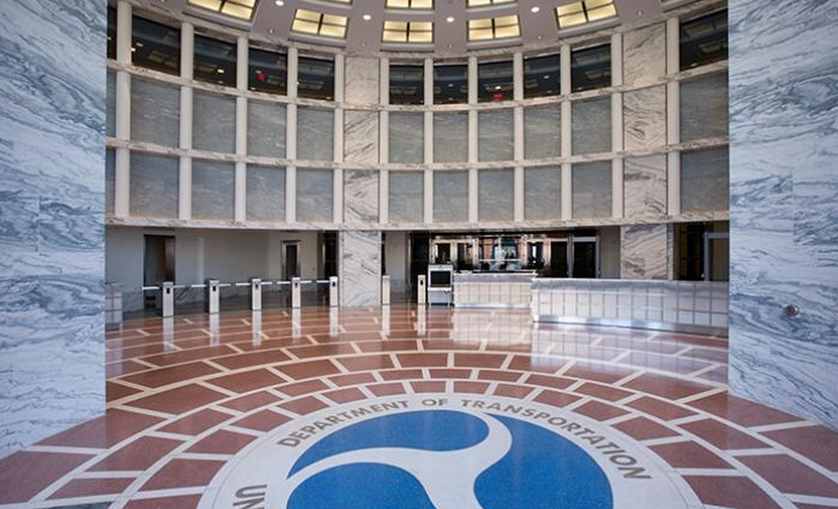DOT Announces the First Round of Grants of Over $94 Million for 59 Projects to Create Safer, More Equitable, Transportation Systems

Biden-Harris Administration Funds Innovative Projects to Create Safer, More Equitable, Transportation Systems
First round of grant awards, funded by the Bipartisan Infrastructure Law, supports projects to improve worker safety, make transit more reliable, and support local business districts
WASHINGTON – Today, U.S. Transportation Secretary Pete Buttigieg announced the first round of grants totaling over $94 million for 59 projects across the country through the new Strengthening Mobility and Revolutionizing Transportation (SMART) Grants Program. The competitive grant program, established by President Biden’s historic Bipartisan Infrastructure Law, provides State, local, and Tribal governments $500 million over five years to leverage technology to create safer, more equitable, efficient, and innovative transportation systems.
“Every major advancement in the history of U.S. transportation has involved technological progress,” said U.S. Transportation Secretary Pete Buttigieg. “The investments we are making today are about fostering innovations that improve people’s day-to-day lives, making transportation safer, more reliable, more efficient, and more sustainable.”
The funding will support a diverse array of topics and communities:
- Five State DOTs are working on projects that will improve safety for workers and drivers in work zones, including a multi-state collaboration that will deploy Automated Truck-Mounted Crash Attenuators, and projects that will leverage the Work Zone Data Exchange (WZDx) Specification. Additionally, over a dozen other SMART projects address worker safety.
- A number of projects will help improve transit reliability, speed, and fare payment, making the experience more seamless for riders. Projects in Alabama, Georgia, Connecticut, and New York will focus on transit innovation with investments in data integration, transit incentives, and accessibility tools.
- The City of Cleveland and others will demonstrate smart traffic signal technologies including Automated Traffic Signal Performance Measures and transit and emergency vehicle signal priority.
- Cities across the U.S. including Buffalo, Los Angeles, Minneapolis, Philadelphia, and Portland will leverage sensors and data to help cities understand and improve curb management practices by allocating their curb space to best serve local businesses, facilitate deliveries, and integrate with transit and active transportation.
- Communities in Maine, Colorado, and Massachusetts will focus on smart grid projects to prepare their communities for more widespread adoption of electric vehicles including cars, buses, and aircraft and ground vehicles at airports.
- Sensor deployments will enable new data collection and operational approaches, ranging from a flood warning system in Harris County, Texas, to crash detection in Nashville, to improved safety at Seattle’s at-grade rail crossings.
- Uncrewed Aircraft Systems (UAS) projects will leverage innovative aviation technology for infrastructure inspections in Alaska, California, and Kansas, as well as medical package deliveries along Virginia’s Eastern Shore and in the Mandan, Hidatsa and Arikara Nation.
- The Michigan Department of Transportation and Whatcom Council of Governments will integrate sensors and data to facilitate commerce at international border crossings, strengthening supply chains, reducing delays, and minimizing congestion impacts in the Midwest and Pacific Northwest.
- Connected vehicle projects in states including Arizona, Michigan, Texas, and Utah will deploy connectivity demonstrations that focus on topics like transit prioritization and safety for pedestrians and cyclists.
The first year of the program was oversubscribed with $6 of applications for every $1 available for grants. “We are thrilled to see the interest in SMART during its inaugural year. This shows the important role this new program can play in helping support State, local, and Tribal efforts to advance technology applications,” said Dr. Robert C. Hampshire, Deputy Assistant Secretary for Research and Technology and Chief Science Officer.
This year’s awardees will build internal teams and partnerships as they refine their concepts, focus on technology procurement and demonstration, develop labor and workforce roadmaps, and position their projects for impact in their communities.
The full list of awards totaling $94,783,781 can be viewed here. The maximum award per project was $2,000,000 for this round of funding. The next funding opportunity of $100 million is expected to be released Fall, 2023.
An interactive map depicting all SMART projects can be found here.
For more information on the SMART Grants Program, sign up for the SMART newsletter on the program website or reach out to smart@dot.gov.




